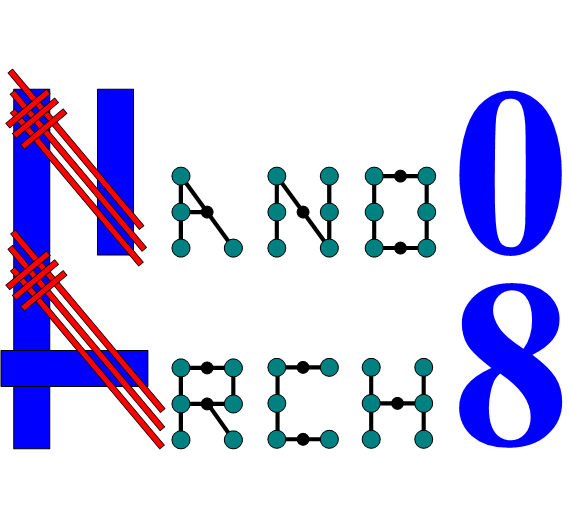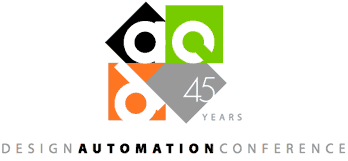Keynote Speakers
(Open to all DAC participants)
Keynote 1: The Impact of Memristance and Memristors in
Nanoelectronic Circuits
Thursday, June 12, 2008, 11:30 –
12:30
Dr.
R. Stanley Williams
Hewlett-Packard Labs, Palo Alto, CA

R. Stanley Williams is an HP Senior Fellow at Hewlett-Packard Laboratories and Director of the Information and Quantum Systems Laboratory (IQSL), which currently has over 60 scientists and engineers working in areas of fundamental physical sciences and engineering. He received a B.A. degree in Chemical Physics in 1974 from Rice University and his Ph.D. in Physical Chemistry from U. C. Berkeley in 1978. He was a Member of Technical Staff at AT&T Bell Labs from 1978–80 and a faculty member (Assistant, Associate and Full Professor) of the Chemistry Department at UCLA from 1980 – 1995. He joined HP Labs in 1995 to found the Quantum Science Research group, which focused primarily on fundamental research at the nanometer scale. His primary scientific research during the past thirty years has been in the areas of solid-state chemistry and physics, and their applications to technology. This has evolved into the areas of nanostructures and chemically-assembled materials, with an emphasis on the thermodynamics of size and shape. Most recently, he has examined the fundamental limits of information and computing, which has led to his current research in nano-electronics, -ionics and -photonics. He has received awards for business, scientific and academic achievement, including the 2007 Glenn T. Seaborg Medal for contributions to Chemistry, the 2004 Joel Birnbaum Prize (the highest internal HP award for research), the 2004 Herman Bloch Medal for Industrial Research, the 2000 Julius Springer Award for Applied Physics, the 2000 Feynman Prize in Nanotechnology, the Dreyfus Teacher-Scholar Award and the Sloan Foundation Fellowship. He was named to the inaugural Scientific American 50 Top Technology leaders in 2002 (and then again in 2005). In 2005, the US patent collection that he has assembled at HP was named the world’s top nanotechnology intellectual property portfolio by Small Times magazine, and the Chinese Academy of Science voted the crossbar latch as the third most significant scientific breakthrough of the year (behind the Cassini and Deep Impact space missions). He was a co-organizer and co-editor (with Paul Alivisatos and Mike Roco) of the workshop and book "Vision for Nanotechnology in the 21st Century", respectively, that led to the establishment of the U. S. National Nanotechnology Initiative in 2000. He has been awarded 71 US patents with more than forty pending, he has published over 300 papers in reviewed scientific journals (with an h-index of 48), and he has written several general articles for technical, business and general interest publications (including an article in the Nov. 2005 issue of Scientific American). One of his patents was named as one of five that will "transform business and technology" by MIT's Technology Review in 2000. He has presented hundreds of invited plenary, keynote and named lectures at international scientific, technical and business events, including one of the 2007 50th Anniversary Laureate Lectures for the TMS, the 2003 Joseph Franklin Lecture at Rice University, the 2004 Debye Lectures at Cornell University, the 2004 Bloch Lecture at the University of Chicago, and the 2005 Carreker Engineering Lecture at Georgia Tech.
See the following link for further information: http://www.hpl.hp.com/research/qsr/index.html
Keynote 2: Ultra-high Density
Electronic Circuitry: Applications and
Fundamental Opportunities
Friday,
June 13, 2008, 11:30 – 12:30
Dr.
James R. Heath
Elizabeth W. Gilloon Professor and Professor of Chemistry
California Institute of Technology, CA



